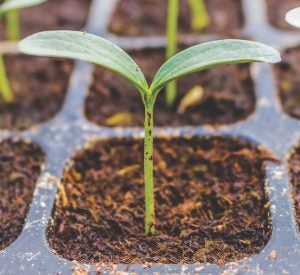By Alexandra Tisdale, Extension Communications
Stroll to your kitchen instead of the grocery store next time you want that fresh cilantro flavor in your guacamole or mint in your mojito.
Growing your own herb garden is a fun and relatively easy way to save money while enhancing your recipes. Which herbs should I grow? Do they grow better indoors or outdoors? Where should I begin?
Getting Started
Herbs are great for beginners because they are drought tolerant and do well in full sun. When you’re ready to start growing your own herbs, consider locating the garden near the kitchen. You’ll be more likely to incorporate the herbs into your recipes if you have quick and easy access.
If you can’t decide what to grow, take a look at your favorite foods and simply grow what you like to eat. Not sure where to start?
“You can easily start fennel, dill, parsley, cilantro and basil from seeds,” said Allyson Shabel, an Extension agent in home grounds and natural resources with the Alabama Cooperative Extension System.
Planting Tips
Shabel explained that most herbs grow best in a well-drained, moderately rich garden soil. Ensure that plants have adequate drainage to prevent the roots from rotting. If you decide to plant seeds, as opposed to cuttings, Shabel suggested placing them in moist soil then covering with a bit more soil.
“Keep them in a sunny, warm space (such as inside a sunny window) until they are about 2 inches tall, “Then, transplant them outside into the garden,” said Shabel.
Plant herbs, such as chives, oregano, rosemary and thyme in the spring. They will return every year, unlike basil, which requires replanting each year. They all grow best in well-drained garden soil and work equally well in pots or window boxes. Other herbs, such as mint and lemon balm, grow quickly and are easily started from plant cuttings instead of seeds.
“Simply take a 3-inch long piece off the tip of the plant and put it in water,” Shabel said. “Once roots have grown, you can transfer it into soil. Grow these plants in pots on a patio to prevent them from overtaking the rest of your garden.”
Be sure to visit the ACES website at www.aces.edu for additional resources on all things lawn and garden. For a specific bulletin on how to grow herbs, call the Chilton County Extension Office at 205.280.6268 and request ANR-1164. The bulletin can also be downloaded at no cost from the Extension website.

